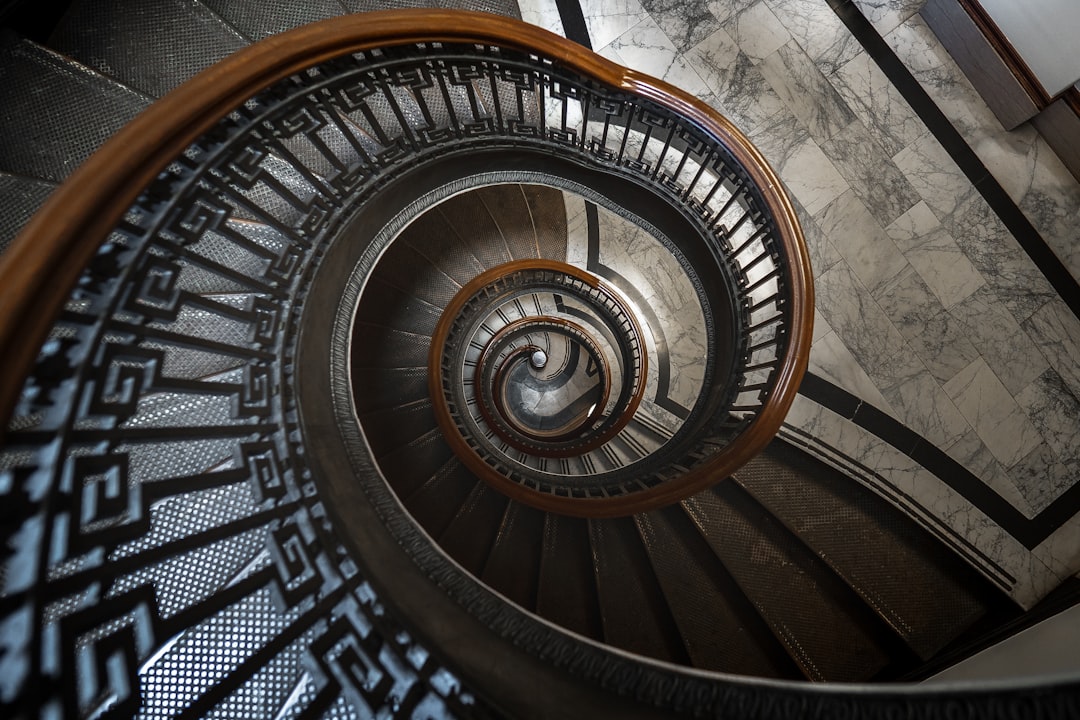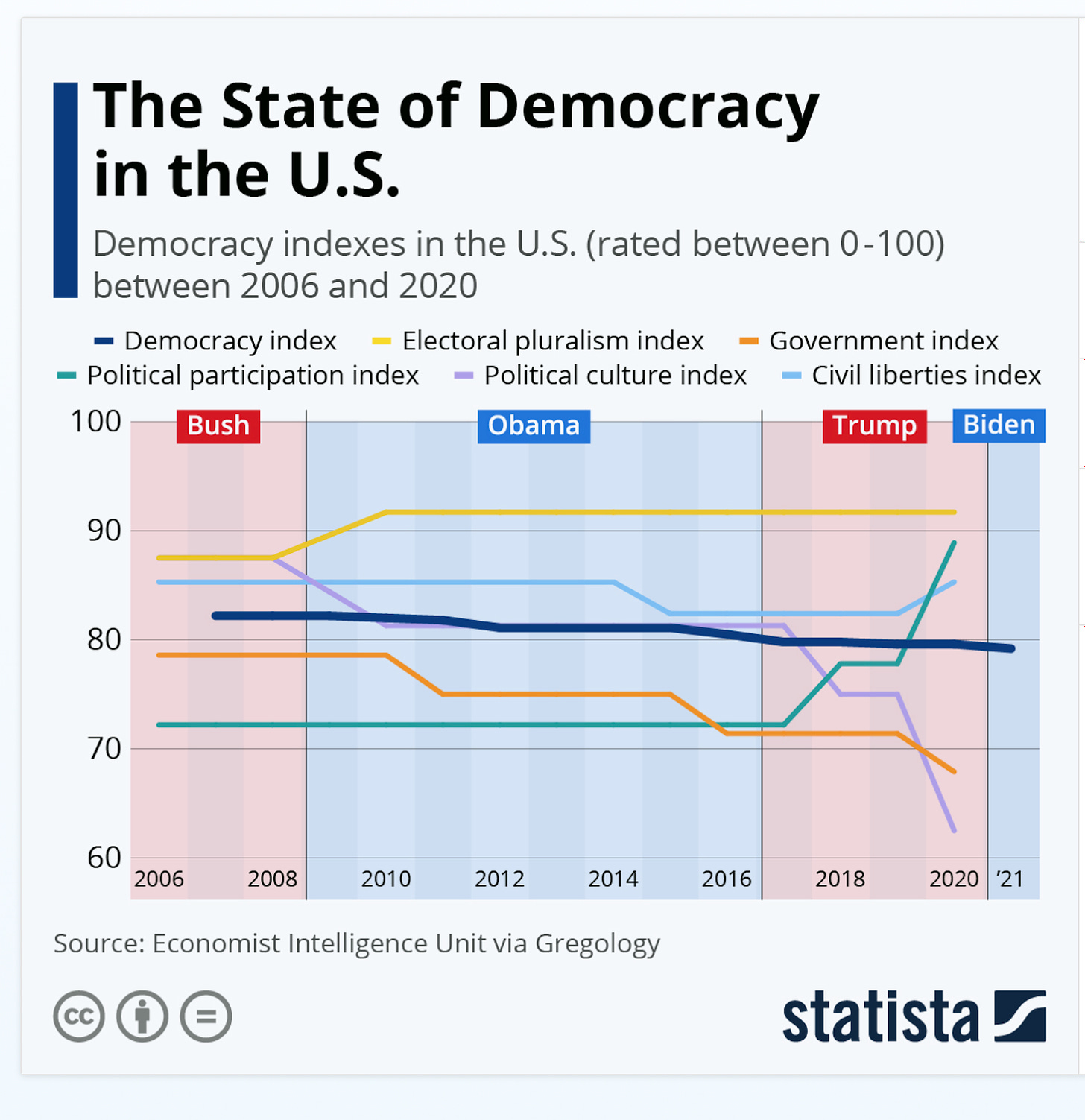
The authority for many people today is Donald Trump, Elon Musk, Tucker Carlson, or [insert your favorite leftist]. Almost nobody reads John Locke’s, The Second Treatise of Government, to understand the underpinnings of American democracy. They listen to their favorite contemporary pundit instead.
These pundits fuel the polarization of American society. Extreme opinions get the clicks and views, not the measured, balanced perspectives. Any whiff of intellectualism that might stink of elitism is certainly not welcome in modern discourse.
Try publishing a “smart” article that promotes solutions to major issues, and you’re more likely to get crickets than claps. But if you rage post and publish doomsday porn, you might go viral. Some of the biggest articles on the current financial crisis are of the anti-capitalism flavor, many of which describe the entire system as rigged and corrupt.
While it may be true in part, I cannot help noticing the Trumpian quality of this rhetoric. Notice whenever Trump nears indictment, he sends a message that “if they can do this to me, imagine what they can do to YOU.” Trump’s political donations and viral political articles require the same thing: fear.
Instead of exercising critical thought on issues, most Americans today retreat to their political tribe. This inevitably hurts democracy. Extreme views proliferate on both sides of the aisle, despite one side flirting far closer to an outright violent revolution.
I have a theory on what may be causing the decline of democracy. It may not be the only cause, but from my perspective, it has a significant impact. That cause is the steady decline in funding for higher education.
America spends increasingly less on higher education
Take a look at this chart showing the percentage change in state funding for higher education from 2008 to 2018.
Almost every state - both red and blue states - has spent increasingly less on education year over year. At the same time, the cost of education has significantly increased. College degrees basically have the value of what a high school diploma had decades ago. And the government still enjoys high interest rates on most student loans.
But we should blame the student borrowers. I guess? If you take out a loan, you pay it back, right? It’s not quite that simple, despite what Republicans argue, but that’s a separate discussion.
The point here is that most public colleges across America are having to make a difficult choice:
Start to operate as a private company by bringing in more revenue (i.e., increasing tuition); and/or
Cut programs, staff, administrative costs, etc.
Under option 2, what programs do you think get cut? The programs that teach real-world practical skills (think STEM), or those focused more on the human condition and developing well-rounded people (think liberal arts)?
An English major may not know how to code, but they can probably write well and think critically through issues with a degree of empathy the amateur coder may lack. A Philosophy major may not be well-versed in linear algebra, but when given a real-world problem, they have a foundation for understanding how to think through solving it.
The problem with defunding humanities topics, including history, is not so much that we’re failing to develop well-rounded people. We’re failing to cultivate and foster an informed citizenry. For democracy to function, an informed citizenry is a necessary condition.
Democracy scores have declined alongside declines in higher education funding
The Economist computes democracy scores annually for countries around the world. There are several factors, and if you’re interested in their methodology you can get more information here. While America’s chart below may not seem like a steep decline for its “Democracy index” (see the solid navy blue line), it’s steady.
If you overlay this chart with the decline in state funding for higher education, it’s difficult to argue there’s no causal linkage. People not trained to question authority, think critically, or apply key lessons from history are far less likely to independently assess the current political climate. They are far more likely to listen to whichever “authority” they subscribe to and rely on that person to tell them what to think.
The recent edited January 6th video that Tucker Carlson broadcasted to the masses that still watch him is the perfect illustration of this. Instead of pausing to think about how Tucker Carlson put the short video together, they took him at his word. They pointed to the tape, despite it contradicting the U.S. Capitol Police account, the judicial system accounts, and numerous eyewitness accounts. Also, people didn’t seem to mind that Tucker’s lawyers have argued in court that “any reasonable viewer should be skeptical of his claims.”
They clearly had not studied enough of Joseph Goebbels.
Now you may argue that many of Tucker’s viewers were not educated in the date range highlighted in these charts, and while that may be true, their messaging is dangerously enticing to the uninitiated. The Kyle Rittenhouse’s of the world. The young minds looking for answers in an increasingly polarized and difficult place to start a career, family, and life.
Do you know how hard it is for young people to get started now? Just look at where interest rates are and consider how someone in their 20s or 30s is supposed to afford a home. People take out student loans for higher education with the hopes of having some semblance of this “normal” American life.
When they struggle, it’s easy to fall prey to a group of people who want to blame everyone and everything, but who offer no practical solutions on how to fix it. Instead, they blame minorities, George Soros, and a host of other boogeymen. They promote conspiracy theories. And of course, they do everything in their power to disenfranchise voters and steal elections, all the while arguing that the other side is the group actually responsible.
If you’re an impressionable young person who is angry at your situation, this way of thinking may seem attractive. If you never received a liberal arts foundation that taught you the many attempts throughout history to use strikingly similar tactics, you may not recognize them.
To thwart anti-democratic movements, the citizenry must be informed. They need a basic understanding of civics and history. Without it, anti-democratic messaging can become very enticing and appealing. The steady decline of America’s democracy score alongside its drop in higher education funding is not a coincidence.
How do we fix it?
First, more people need to convince their state legislatures to allocate more funding for higher education. Second, to convince them to fund liberal arts programs, the programs themselves need to demonstrate that they have adapted to the demands of the modern world.
Every liberal arts course should now have a focus on social media. English majors should study how to tweet succinctly and persuasively. Philosophy majors should make presentations on TikTok.
The creator economy is only growing. If colleges gave students the tools to navigate it effectively, they could help counter the biggest critique of liberal arts - real-world applicability.
How would Aristotle communicate in the modern age? How could Taoism apply? The list goes on.
Disciplines outside the liberal arts, particularly in STEM fields, should be required to incorporate key liberal arts concepts. Ethics. Morality. Justice. Truth. Fairness.
Imagine algorithms or chatbots that fail to comprehensively understand these complex issues.
Until we face the reality that the funding and focus we place on education have an inextricable linkage to America’s democratic functioning, we will continue to witness its decline. Anti-democratic threats will only grow louder. And soon, no amount of funding will be able to combat them.
For more of my writing, find me on Medium and subscribe if you haven’t already. Also, subscribe to my YouTube channel!




